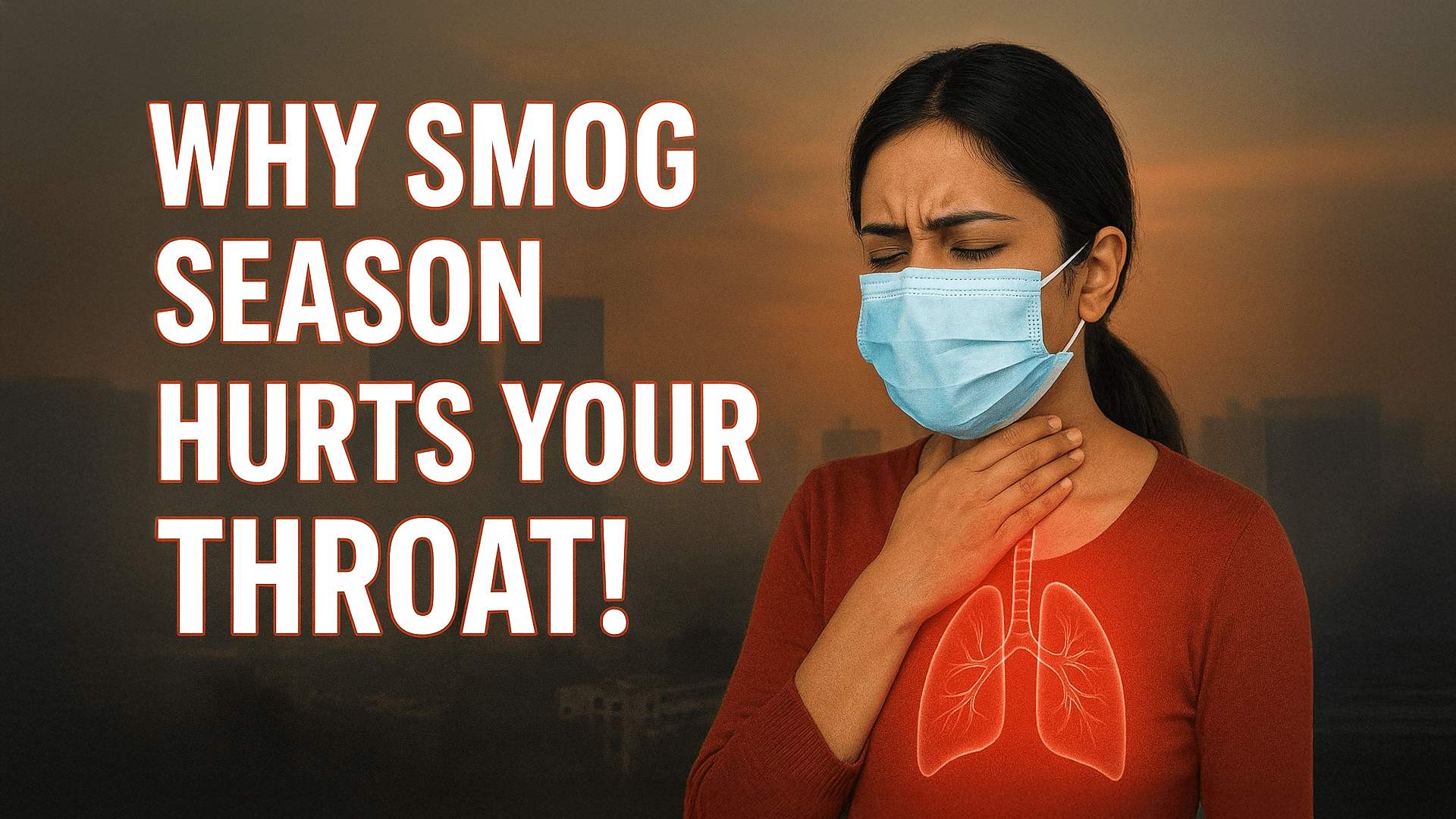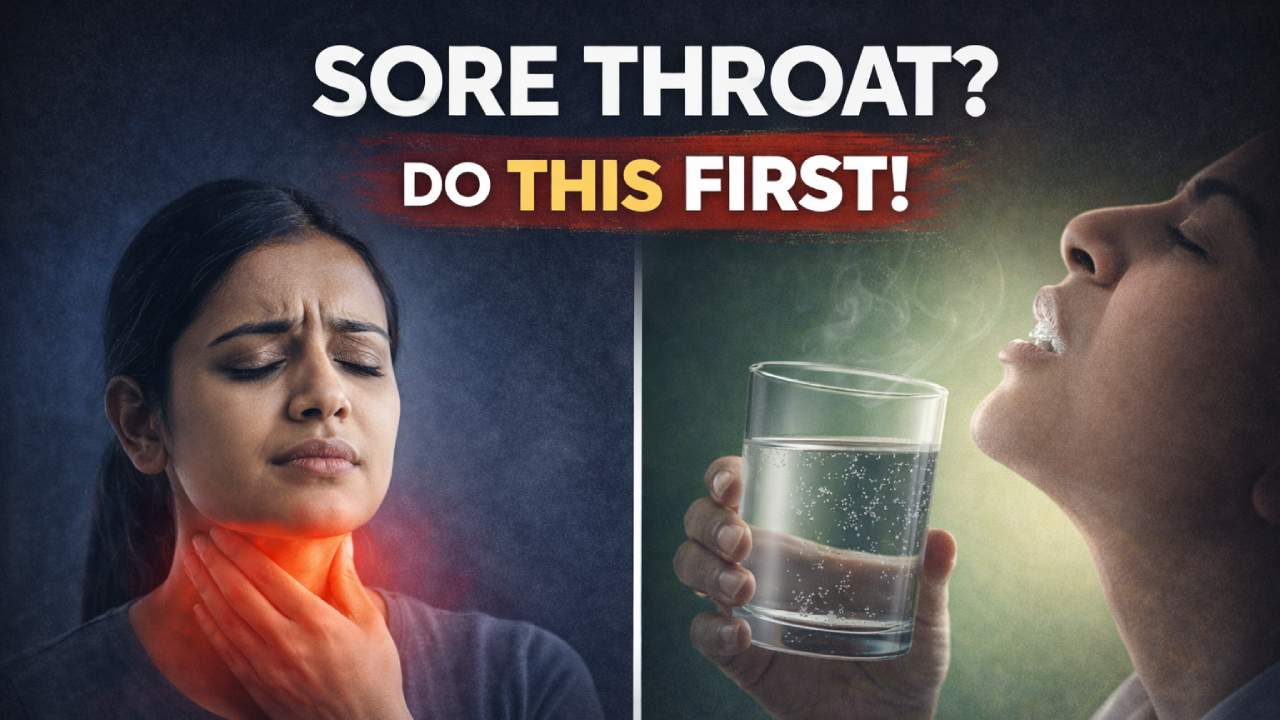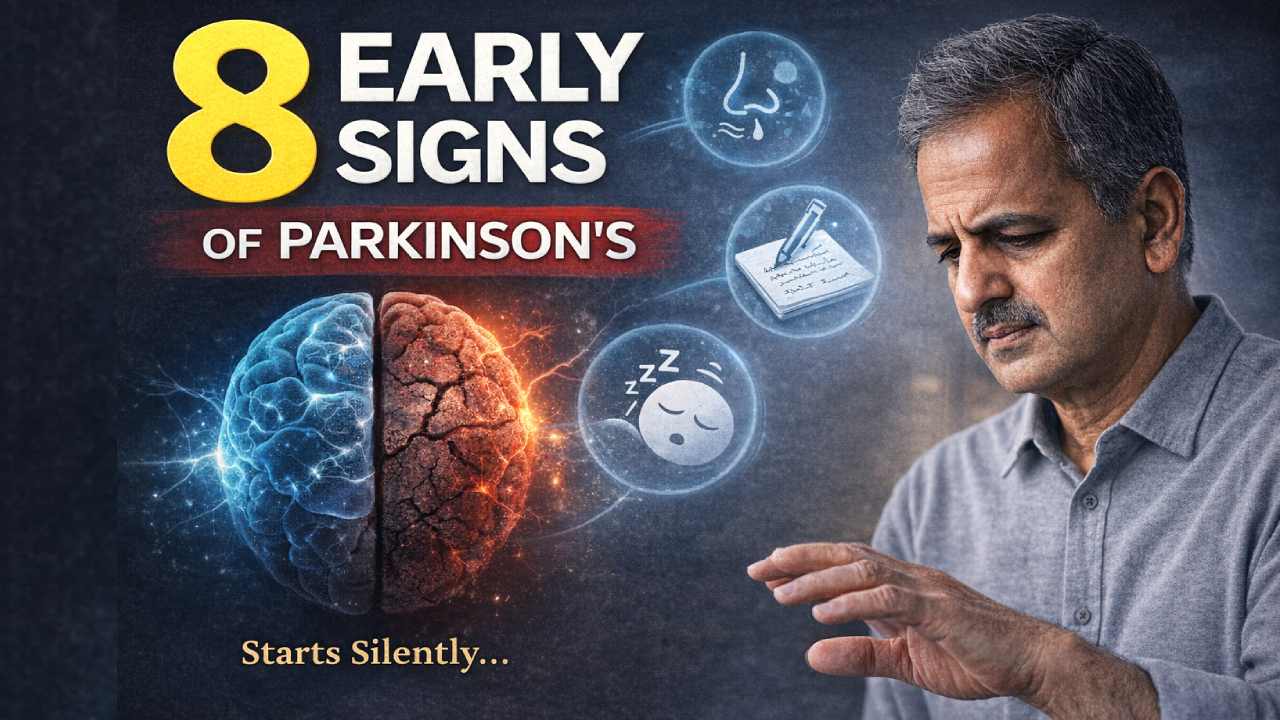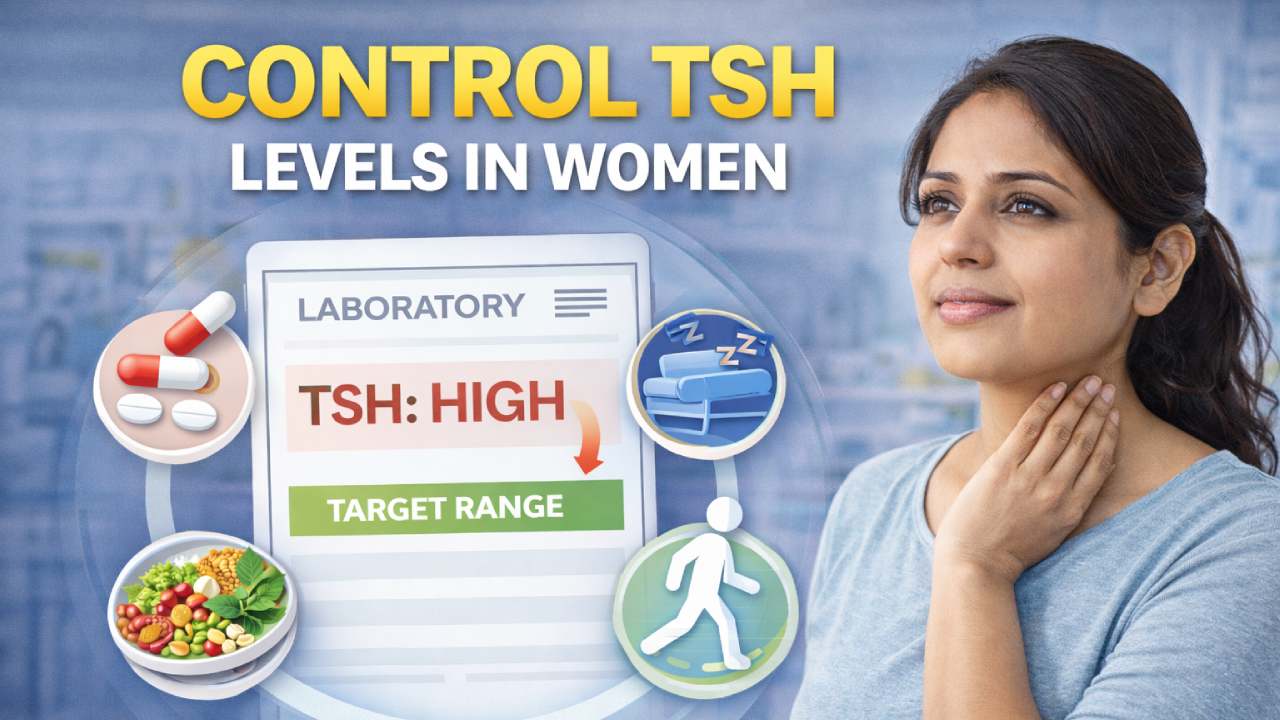Why Your Throat Hurts More During Smog Season
Verified By Dr. Sudhir Kr. Gupta | 08-Oct-2025
Every winter, North India experiences a surge in air pollution due to industrial emissions, vehicular smoke, crop burning, and cooler weather. This creates the infamous smog season, which can significantly affect respiratory health. One of the most common complaints during this period is a sore throat — often mild at first, but increasingly irritating for many people.
Dr. Sudhir Kr Gupta, Sr. Consultant (Chest Physician & Bronchoscopist) at Kailash Hospital, Noida, explains why your throat hurts more during smog season, how pollution impacts your respiratory system, and what steps you can take to protect yourself.
Table of Content
Smog is a type of air pollution harmful to the respiratory system. It’s a mix of fog, dust, smoke, and chemical pollutants, including:
- PM2.5 and PM10: Tiny particles that can penetrate deep into the lungs and enter the bloodstream.
- Nitrogen Oxides and Sulfur Dioxide: Cause irritation in the eyes, nose, and throat.
- Ozone and Volatile Organic Compounds (VOCs): Lead to inflammation of the respiratory tract.
During smog season, these pollutants concentrate in the air, reducing visibility and increasing the risk of throat irritation, cough, and breathing difficulties.
Polluted air affects the throat lining (mucosa), which is sensitive to toxins and particulate matter. The main reasons for throat discomfort include:
- Irritation of the Throat Lining: Fine particles in smog settle on the mucous membrane, causing redness, dryness, and discomfort.
- Inflammation: The immune system reacts to pollutants as foreign particles, leading to swelling and soreness.
- Dehydration of the Mucous Membrane: Dry winter air combined with pollution reduces moisture, making the throat feel scratchy and painful.
- Increased Risk of Infection: Polluted air weakens local immunity, making the throat more susceptible to viral and bacterial infections.
Also read: Understanding Chest Heaviness after Eating: Causes, Symptoms, and Solutions
While anyone can experience throat irritation during smog season, some groups are at higher risk:
- Children and Elderly: More sensitive airways and weaker immunity.
- Asthma and Allergy Patients: Pollution can trigger flare-ups and worsen symptoms.
- Smokers: Already compromised airways are more vulnerable.
- People with Chronic Respiratory Conditions: COPD, bronchitis, and other lung issues increase susceptibility.
Even healthy individuals may experience temporary discomfort, but prolonged exposure can lead to serious health problems.
- Dryness or scratchiness in the throat
- Persistent coughing or throat clearing
- Hoarseness or voice fatigue
- Irritation while swallowing
- Sneezing or nasal congestion
- Mild fever or malaise if secondary infections develop
Recognizing these symptoms early helps in taking preventive measures and avoiding complications.
Air pollution does more than cause temporary throat irritation; it can have long-term effects:
- Damage to Cilia: Tiny hair-like structures that clear mucus and dust can be impaired, reducing natural defense.
- Inflammatory Response: Chronic exposure leads to persistent inflammation, increasing susceptibility to infections.
- Immune System Modulation: Pollutants can alter immune responses, making it harder to fight viruses and bacteria.
Dr. Gupta explains, “Even short-term exposure to high pollution can irritate the throat, but repeated exposure over years may increase the risk of chronic respiratory disorders, including asthma and bronchitis.”
Also read: Navigating India's COVID-19 Resurgence: Your Top Questions Answered by a Leading Pulmonologist
Although avoiding outdoor pollution completely is difficult, several measures can help reduce its impact:
1. Limit Outdoor Exposure
- Avoid going outside during peak pollution hours (early morning and late evening).
- Monitor the daily Air Quality Index (AQI).
2. Wear Protective Masks
- Use N95 or N99 masks to filter out particulate matter.
- Ensure a snug fit around nose and mouth.
3. Stay Hydrated
- Drink plenty of water to keep your throat moist.
- Warm herbal teas with honey can soothe irritation.
4. Use Air Purifiers
- HEPA-filter air purifiers can reduce indoor pollutants.
- Keep windows closed during peak smog.
5. Maintain Hygiene
- Gargle with salt water to reduce bacterial load.
- Wash hands frequently to prevent secondary infections.
6. Healthy Diet and Lifestyle
- Include antioxidant-rich foods to support respiratory health.
- Avoid smoking and exposure to chemical fumes.
Medical attention is necessary if:
- Sore throat persists for more than 5–7 days
- Difficulty breathing, wheezing, or persistent cough develops
- Fever accompanies throat irritation
- Symptoms worsen despite home care
At Kailash Hospital, Noida, our pulmonology departments provide comprehensive care for pollution-related respiratory issues, including diagnosis, treatment, and preventive guidance.
Treatment depends on severity:
- Mild Cases: Symptomatic care with lozenges, hydration, and humidifiers.
- Moderate to Severe Cases: Anti-inflammatory medications, inhalers for asthma, or antibiotics if secondary infection is present.
- Long-Term Management: Counseling on air quality, lifestyle changes, and preventive care.
Also read: Unlocking Relief: How to Relieve Chest Tightness and Shortness of Breath
Key preventive strategies:
- Avoid outdoor exposure during high pollution periods.
- Use masks and air purifiers consistently.
- Stay hydrated and maintain a healthy diet.
- Strengthen immunity with vitamins and antioxidants.
- Regular check-ups for vulnerable populations like children, elderly, and chronic patients.
Sore throat during smog season is a sign that your respiratory system is under stress. Understanding the causes, symptoms, and preventive measures can protect you and your loved ones from more serious health problems.
Dr. Gupta advises, “Temporary throat irritation is common, but persistent symptoms should never be ignored. At Kailash Hospital, our team is dedicated to providing expert care for all pollution-related respiratory issues, helping patients breathe easier and stay healthy even during the worst smog season.”
By following simple preventive steps and seeking timely medical attention, you can minimize the impact of pollution on your throat and overall health.



 +91-9711918451
+91-9711918451
 international.marketing@kailashhealthcare.com
international.marketing@kailashhealthcare.com







